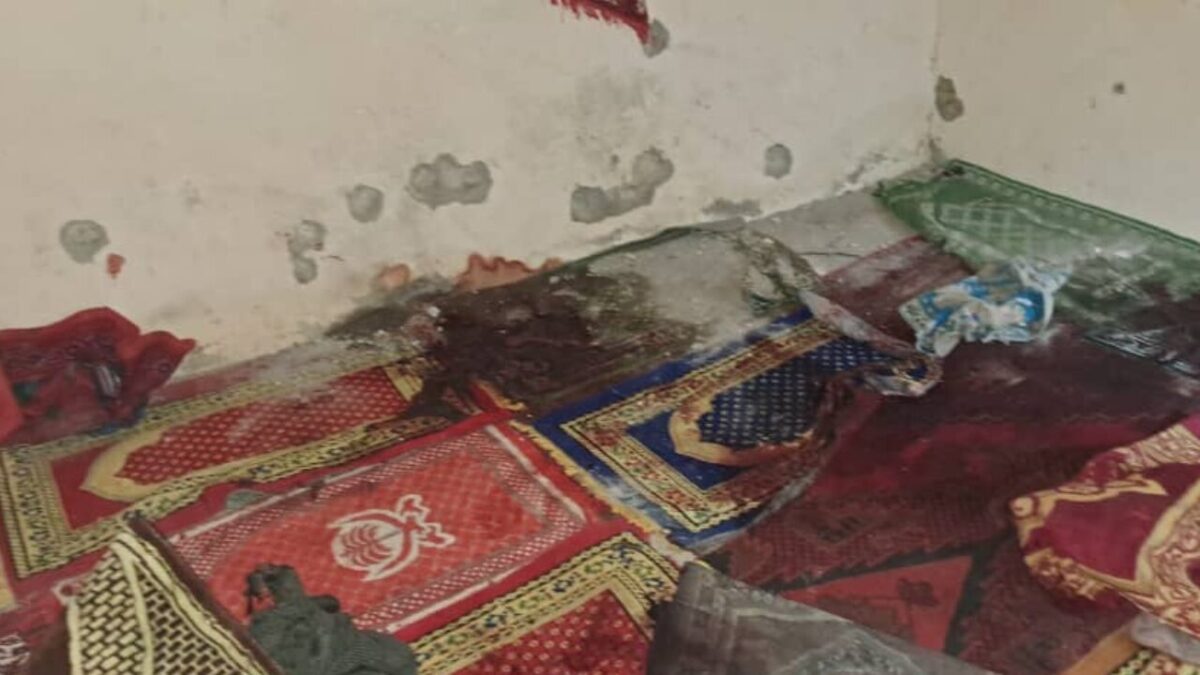- Joined
- Mar 11, 2013
- Messages
- 14,658
- Points
- 113

The room inside the shrine where the attack happened.
The Islamic State’s Khorasan branch has claimed responsibility for Thursday night’s deadly attack on a Sufi shrine in the Nahrin district of Baghlan Province, Afghanistan. The assault at the Sayed Padshah shrine killed 10 worshipers who were engaged in zikr, a form of devotional prayer.
Taliban spokesperson Zabihullah Mujahid said two individuals have been arrested in connection with the attack.
“The Taliban are pursuing this case to identify and bring the perpetrators to justice,” he said. “All efforts are underway.”
International condemnation
The European Union condemned the attack, calling on the Taliban to ensure the safety of all communities and prevent such violence.
“We condemn the attack on civilians during worship in Baghlan Province,” the EU delegation in Kabul said in a statement. “Our heartfelt condolences go to the victims and their families. All communities must be safe and secure from violence.”
A pattern of violence against Sufis
Since the Taliban regained power in 2021, this marks the fifth major attack targeting Sufi shrines and lodges in Afghanistan. Previous incidents have occurred in Kabul, Kunduz, and Balkh Provinces.
According to United Nations data, between August 15, 2021, and May 30, 2023, four attacks against Sufi communities were recorded, resulting in 103 deaths and 228 injuries.
Notable attacks on Sufi sites
April 22, 2022: Khanqah Mawlawi Sikandar, Imam Sahib district, Kunduz — 33 killed, 43 injured.
April 29, 2022: Khalifa Sahib Khanqah, Kabul’s Sixth District — 50 killed, 70 injured.
August 17, 2022: Sediqiya Mosque, Khair Khana area, Kabul — 21 killed, 33 injured.
November 23, 2024: Sayed Padshah Khanqah, Nahrin district, Baghlan — 10 killed.
Despite the Taliban’s repeated assertions that ISIS has been eradicated in Afghanistan, the group continues to claim responsibility for high-profile attacks. The presence and activities of ISIS-K in Afghanistan remain a source of concern for regional powers and the international community.
Political analyst Samar Sadat criticized the Taliban’s handling of security, stating, “The Taliban frequently deny these attacks, but they lack the capability to manage the country’s security. There is suspicion that these actions are carried out with the cooperation of the ruling group and other terrorist organizations.”
A Kabul resident echoed similar frustrations. “The Taliban claim there is security, but where is it? Explosions, suicide attacks, killings, assassinations, and theft are everywhere. Why do the Taliban deny this reality?”
The claim of responsibility by ISIS-K was first reported by Agence France-Presse.
